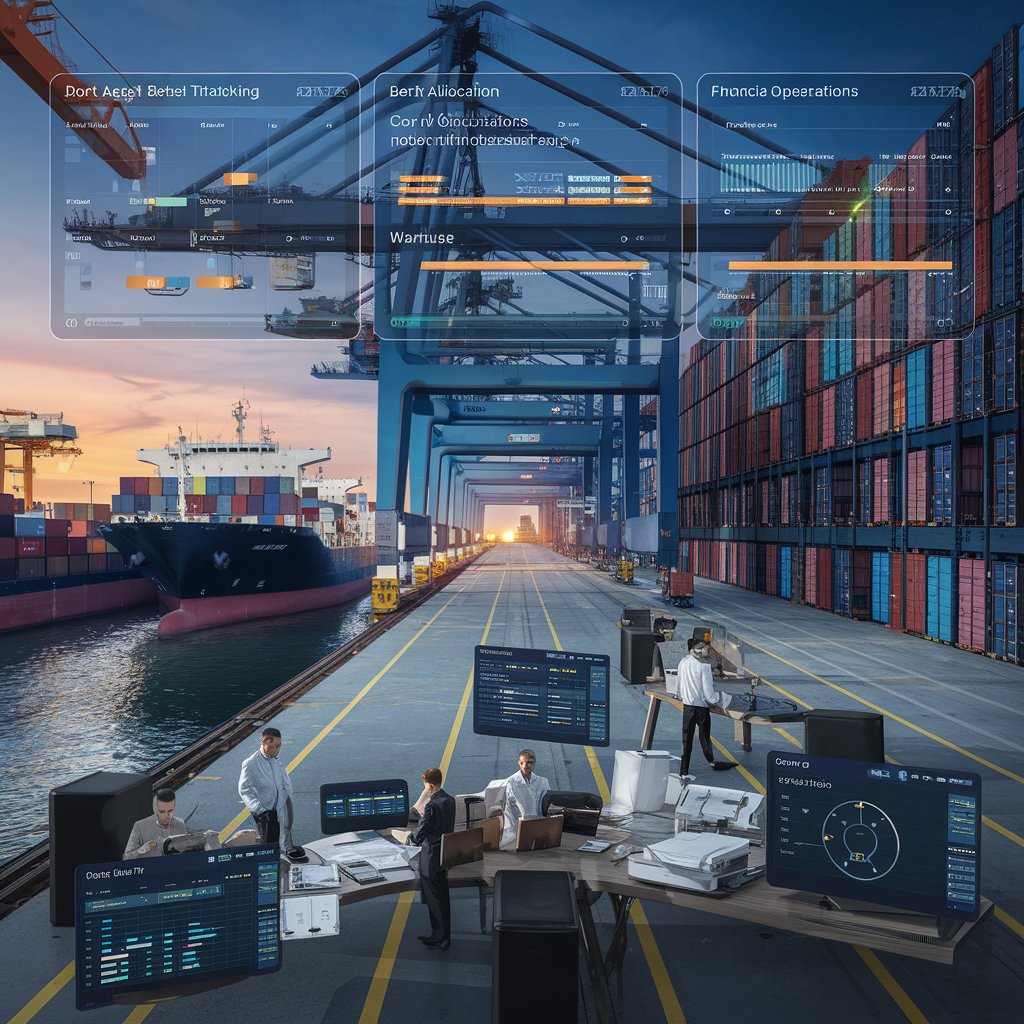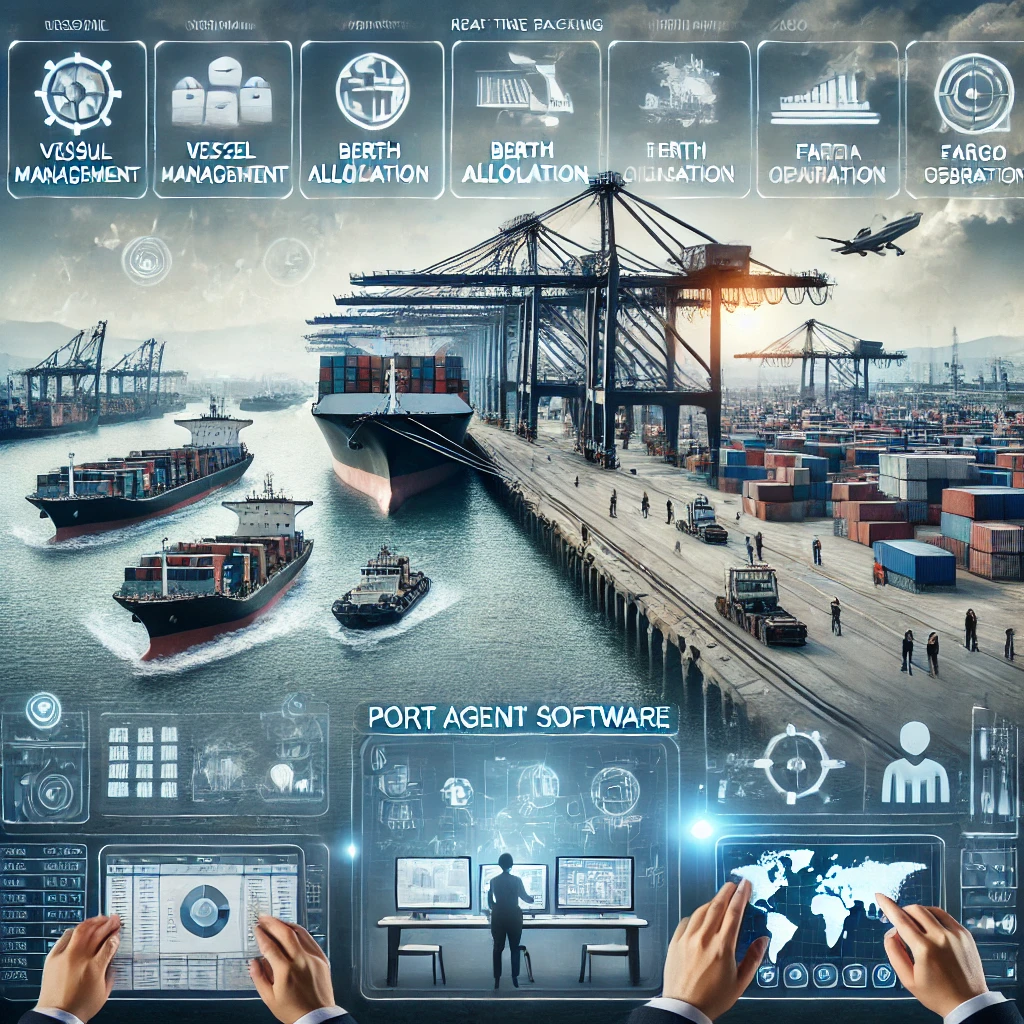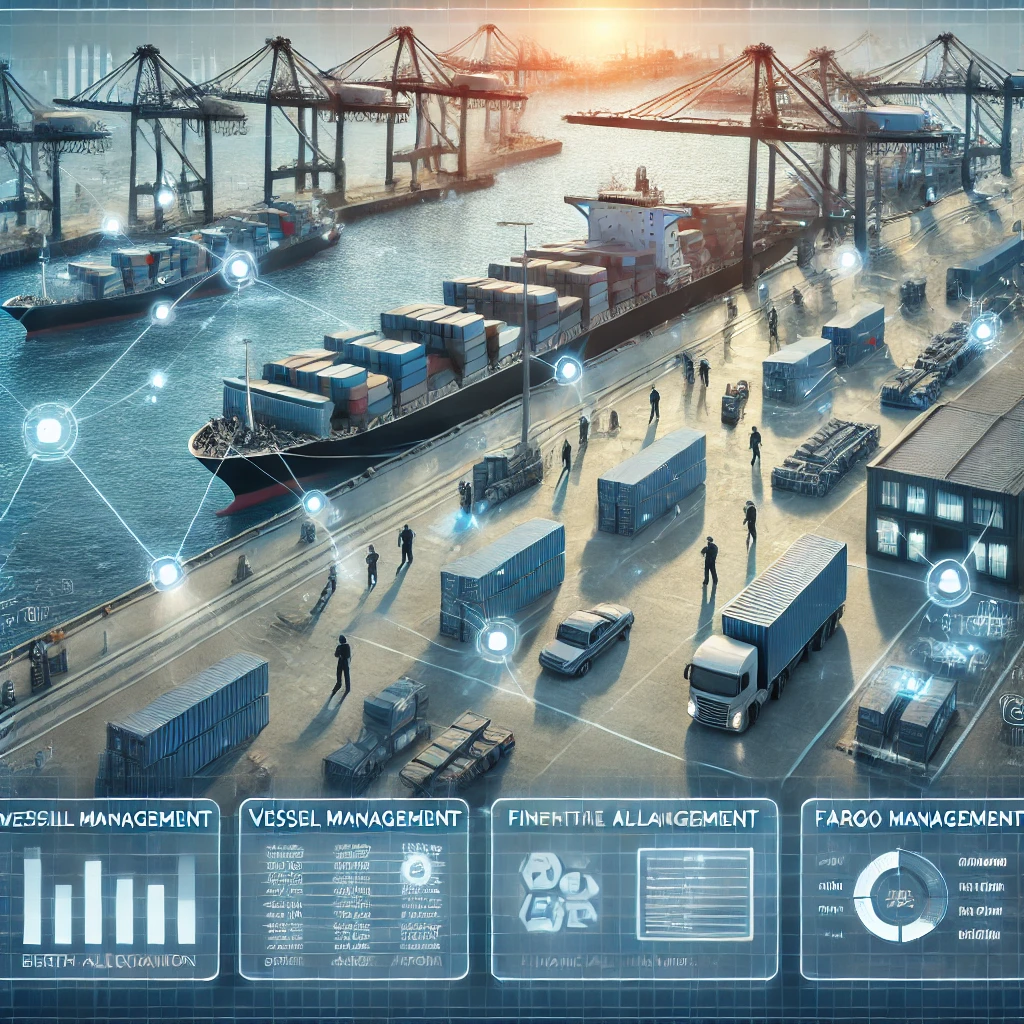Software for Port Agents: Streamlining Maritime Operations in the Digital Age

Understanding the Role of Port Agents
Before delving into the software solutions, it’s essential to understand the critical role that port agents play in the maritime industry:
- Vessel Coordination: Managing ship arrivals, departures, and berth allocations.
- Documentation: Handling necessary paperwork for customs, immigration, and port authorities.
- Cargo Operations: Overseeing loading, unloading, and transshipment of cargo.
- Crew Management: Assisting with crew changes, medical care, and other crew-related matters.
- Supplier Coordination: Arranging for provisions, fuel, and other necessary supplies.
- Financial Management: Managing port fees, supplier payments, and other financial transactions.
Given the complexity and diversity of these tasks, specialized software for port agents has become indispensable in modern maritime operations.
The Need for Port Agency Software
The shipping industry is rapidly digitalizing, and port agents are at the forefront of this transformation. Here’s why specialized software for port agents is crucial:
- Increased Efficiency: Automates routine tasks, reducing manual errors and saving time.
- Enhanced Communication: Facilitates real-time information sharing among all stakeholders.
- Improved Accuracy: Minimizes data entry errors and ensures consistency across operations.
- Better Resource Management: Optimizes allocation of resources, including personnel and equipment.
- Regulatory Compliance: Helps ensure adherence to complex and ever-changing maritime regulations.
- Data-Driven Decision Making: Provides valuable insights through analytics and reporting features.

Key Features of Port Agent Software
When selecting software for port agents, it’s important to look for solutions that offer a comprehensive set of features tailored to the unique needs of port operations. Here are some essential features to consider:
1. Vessel Management
- Real-time vessel tracking and ETA updates
- Berth allocation and management
- Port call scheduling and optimization
2. Documentation Management
- Digital storage and retrieval of essential documents
- Automated generation of standard forms and reports
- Integration with customs and port authority systems
3. Cargo Operations
- Cargo tracking and status updates
- Loading and unloading schedule management
- Integration with terminal operating systems
4. Financial Management
- Invoicing and payment processing
- Cost tracking and analysis
- Integration with accounting systems
5. Crew Management
- Crew change coordination
- Immigration and visa processing support
- Crew welfare management
6. Supplier Management
- Vendor database and performance tracking
- Order management for supplies and services
- Integration with procurement systems
7. Reporting and Analytics
- Customizable dashboards and reports
- Performance metrics and KPI tracking
- Data visualization tools
8. Mobile Accessibility
- Mobile apps for on-the-go access
- Real-time notifications and alerts
- Offline capabilities for areas with poor connectivity
9. Integration Capabilities
- APIs for connecting with other logistics software
- Compatibility with industry-standard data formats
- Seamless data exchange with partner systems

Benefits of Implementing Port Agent Software
Adopting specialized software for port agents can bring numerous benefits to maritime operations:
- Streamlined Workflows: Automates and optimizes complex processes, reducing manual intervention.
- Improved Visibility: Provides real-time insights into all aspects of port operations.
- Enhanced Customer Service: Enables quicker response times and more accurate information for clients.
- Cost Reduction: Minimizes errors and inefficiencies that can lead to costly delays or penalties.
- Better Compliance: Ensures adherence to regulatory requirements and industry standards.
- Scalability: Supports growth and expansion of port agency operations.
- Competitive Advantage: Enables port agents to offer superior services and attract more business.

Integrating Port Agent Software with Freight Forwarding Solutions
In the interconnected world of logistics, port agent software doesn’t operate in isolation. Integration with other logistics solutions, particularly freight forwarding software like Linbis, is crucial for seamless end-to-end supply chain management.
Linbis: A Comprehensive Freight Forwarding Software
Linbis is a leading freight forwarding software that complements port agent software by providing robust capabilities for managing the broader logistics process. Some key features of Linbis include:
- Shipment tracking and management
- Documentation generation and management
- Rate management and quoting
- Customs compliance tools
- Financial management and invoicing
- Reporting and analytics
Benefits of Integration
When port agent software is integrated with freight forwarding solutions like Linbis, the benefits multiply:
- End-to-End Visibility: Track shipments from origin to destination, including port operations.
- Seamless Data Flow: Eliminate data re-entry and ensure consistency across systems.
- Improved Collaboration: Facilitate better communication between port agents and freight forwarders.
- Enhanced Customer Experience: Provide clients with comprehensive, real-time updates on their shipments.
- Optimized Resource Allocation: Better coordinate resources across the entire logistics chain.
- Advanced Analytics: Gain deeper insights by combining data from port operations and freight forwarding.
Choosing the Right Software for Port Agents
Selecting the appropriate software solution is crucial for port agents looking to optimize their operations. Here are some factors to consider:
- Scalability: Ensure the software can grow with your business needs.
- User-Friendliness: Look for intuitive interfaces that require minimal training.
- Customization: Choose solutions that can be tailored to your specific workflows.
- Support and Maintenance: Opt for vendors that offer robust customer support and regular updates.
- Integration Capabilities: Prioritize software that can easily connect with other systems, including freight forwarding solutions like Linbis.
- Security: Ensure the software has strong data protection and privacy features.
- Cost: Consider both initial implementation costs and long-term ROI.

The Future of Port Agent Software
As technology continues to evolve, so too will software for port agents. Here are some trends shaping the future of these solutions:
- Artificial Intelligence and Machine Learning: AI-powered predictive analytics for optimizing port operations and resource allocation.
- Internet of Things (IoT): Enhanced integration with IoT devices for real-time tracking and monitoring of assets and cargo.
- Blockchain Technology: Improved transparency and security in documentation and financial transactions.
- Virtual and Augmented Reality: Advanced visualization tools for port planning and operations management.
- 5G Connectivity: Faster, more reliable data transfer enabling real-time decision making.
- Autonomous Vessels: Integration with systems managing autonomous and semi-autonomous ships.
Conclusion: Embracing Digital Transformation in Port Agency
In an era of rapid technological advancement and increasing global trade complexity, software for port agents has become not just a useful tool, but a necessity for staying competitive. By leveraging these advanced solutions and integrating them with complementary systems like Linbis freight forwarding software, port agents can streamline their operations, enhance efficiency, and provide superior service to their clients.
As the maritime industry continues to evolve, those who embrace digital transformation will be best positioned to navigate the challenges and opportunities of the future. Whether you’re a small independent port agent or part of a large shipping conglomerate, investing in the right software solution can be the key to unlocking new levels of productivity, profitability, and growth in the dynamic world of maritime logistics.
By carefully evaluating your needs, exploring available options, and choosing a solution that offers both comprehensive features and seamless integration capabilities, you can ensure that your port agency operations are ready to meet the demands of the digital age. With the right software in place, port agents can look forward to smoother sailing in the complex waters of global maritime trade.
